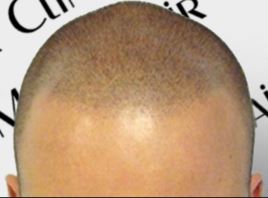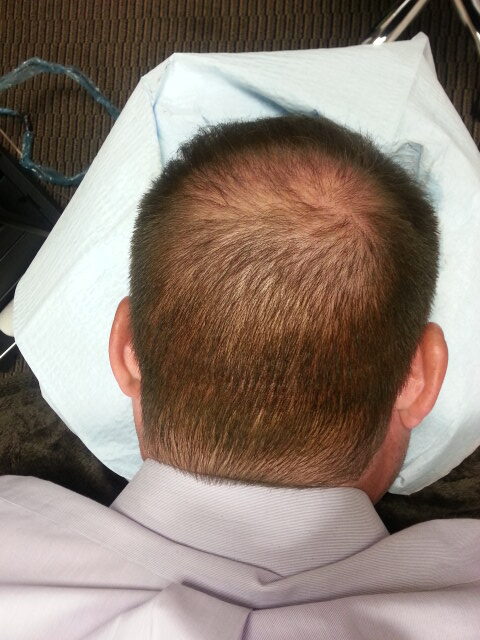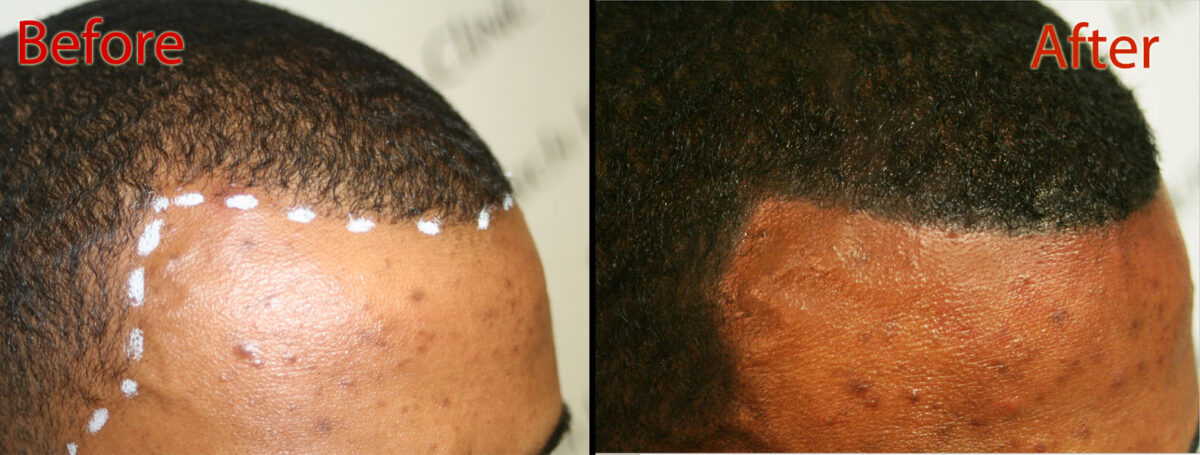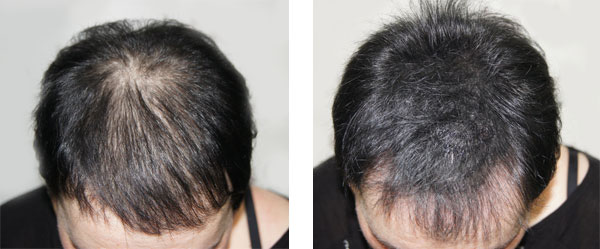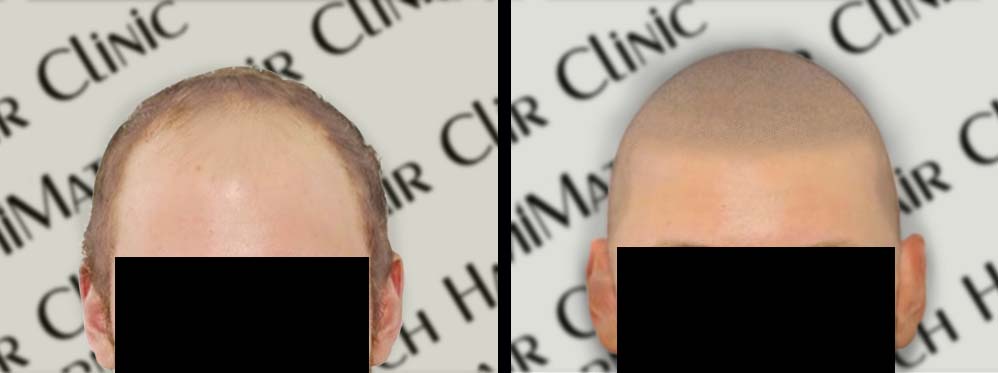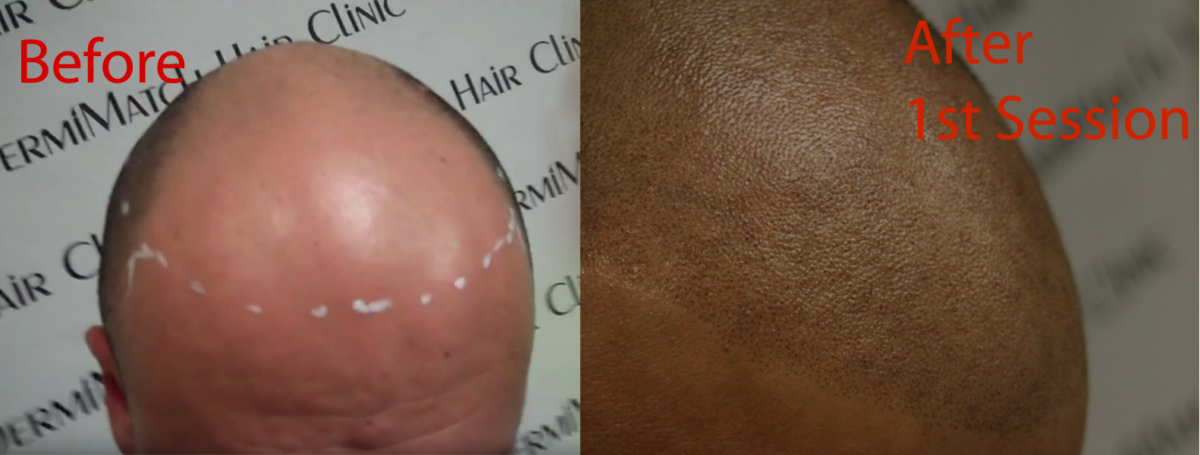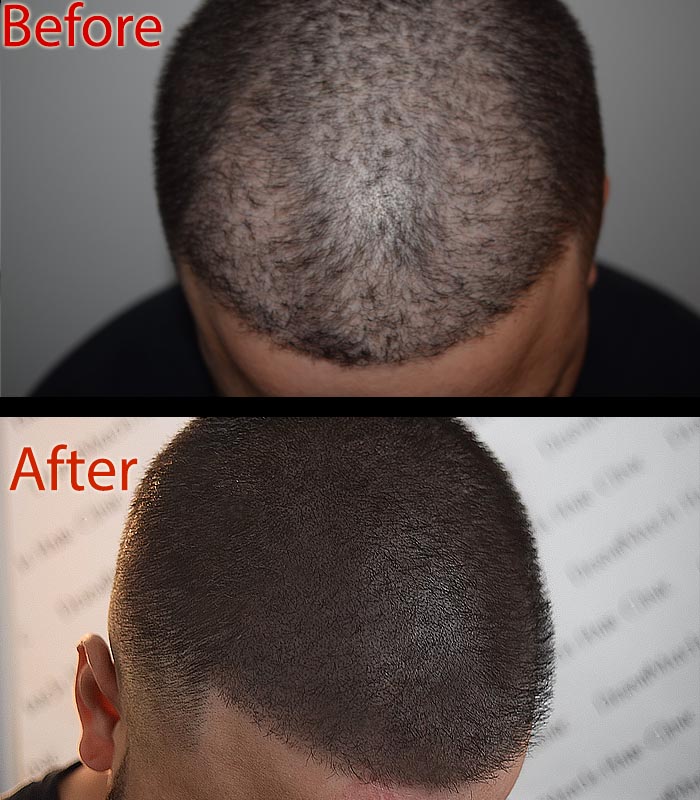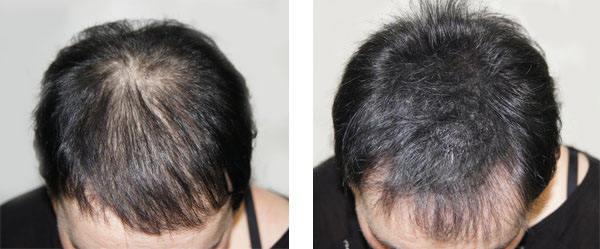Baldness, or hair loss, is a prevalent condition affecting millions globally, impacting both men and women. While some shedding is natural (around 50-100 hairs daily), excessive hair loss can signal the onset of baldness. Recognizing the early signs empowers you to explore treatment options and potentially slow down the process.
This article delves into the various signs of baldness in men and women, equipping you with the knowledge to address hair loss concerns proactively.
Unveiling the Signs of Baldness
Hair loss manifests differently for men and women. Here’s a breakdown of the telltale signs for each:
Men
Receding Hairline: This is often the most noticeable sign. The hairline starts to move back in an “M” shape. It becomes prominent around the person’s temples. Unfortunately, it doesn’t stop there and gradually recede over time.
Thinning on Top: Hair becomes progressively finer and sparser on the crown, eventually leading to a bald spot.
Widening Part: Your natural hair part may become significantly wider, revealing more scalp.
Circular Patch: Occasionally, a circular patch of baldness appears on the scalp, medically known as Alopecia Areata.
Women
Diffuse Thinning: Hair loss tends to be more generalized across the entire scalp, rather than in specific areas. Hair density decreases overall, making the scalp more visible.
Widening Part: Similar to men, women can experience a widening part line as hair density diminishes.
Receding Hairline: While less frequent in women compared with men, some women may also experience a slight recession of the hairline at the temples.
Reduced Ponytail Bulk: A noticeable reduction in the volume and thickness of your ponytail can be a sign of hair loss.
Baldness Signs Common to Both
Excessive Shedding: Finding large clumps of hair on your brush or in the shower drain can be a significant indicator of hair loss.
Slowing Hair Growth: The typical hair growth cycle can be disrupted, leading to hair taking longer to reach its full length.
Increased Scalp Visibility: As hair density decreases, more scalp becomes apparent, especially under bright light.
Beyond the Signs: What Might Be Causing Hair Loss?
Understanding the potential causes of hair loss can be helpful. From genetics to hormonal changes, pregnancy, menopause, childbirth, medical disorders, stress, and diet can all contribute to hair loss. Besides, hair care practices may be blamed for hair loss in some cases.
Addressing Hair Loss: Exploring Solutions
If you’re experiencing signs of baldness, it’s crucial to consult a hair loss specialist for diagnosis. Depending on the cause and severity of hair loss, various treatments may be recommended, including:
Hair Transplant: It is a surgical procedure for hair loss. It involves the transplantation of healthy follicles from one part to the balding spots.
Platelet-Rich Plasma: This treatment uses concentrated platelets from the patient’s blood and injects into the area with thinning hair or bald patches to stimulate the growth of hair.
Medications: There are certain hair growth medications that have got the FDA nod for use on humans. The most popular medications include Minoxidil and Finasteride.
Scalp Micropigmentation: A Modern Approach to Hair Loss
For those seeking a non-surgical solution, Scalp Micropigmentation (SMP) has emerged as a popular option. This innovative technique utilizes cosmetic tattooing to create the appearance of tiny hair follicles on the scalp. SMP offers several advantages:
Non-invasive and Painless: Since no surgery or anesthesia is involved during the treatment, SMP is a painless procedure and perfect for those looking for a non-surgical option.
Realistic Results: Skilled SMP artists can create a natural-looking hairline and add density to thinning areas.
Low Maintenance: Unlike hair transplants, SMP requires minimal upkeep.
Suitable for Men and Women: This technique can effectively address hair loss concerns for both genders.
Whether you’re experiencing the first signs of baldness or have already reached a more advanced stage, there are solutions available. By recognizing the signs, exploring treatment options, and considering non-surgical alternatives like SMP, you can reclaim your confidence and embrace a head of hair that complements your unique style.
If you are interested in a non-surgical permanent solution, then SMP can be an impressive option. Choose the best hands for your scalp job in Arizona.
DermiMatch Clinic is proud of its team of Arizona SMP professionals who have helped several clients overcome the fear of baldness with SMP.
Schedule your consultation now.

